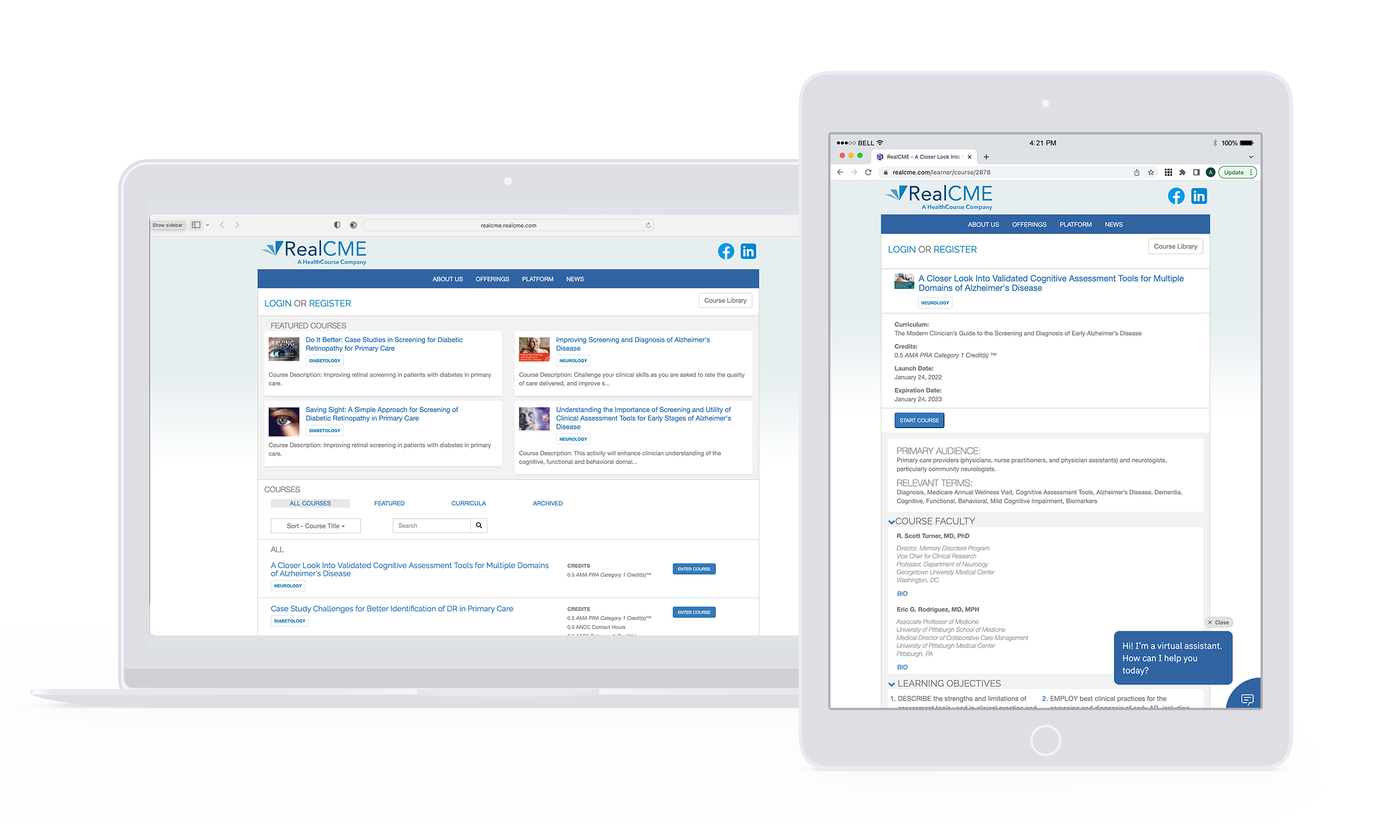Activity Templates & Samples
Activity Templates
Adaptive Learning Programs
Adaptive Learning Programs (ALPs) facilitate personalized learning pathways through a two tier design. Tier 1 consists of an interactive Self-Assessment covering all topics of the curriculum. Learners are then seamlessly directed to the appropriate activity pathway in Tier 2 based on their assessment performance. Every learner experiences an individualized curriculum based on current mastery, thereby more efficiently using the time that each learner dedicates to the program and increasing its impact.
Best for: Topic areas with a wide range of knowledge and competency
Patient Visit /Continuum
The Patient Visit / Continuum is a case-based activity simulating one or more patient visits with his/her provider. The activity reflects the types of decisions that the learners will encounter in day-to-day practice, from a work-up, assessment, and management perspective.
Best for: Increasing clinical skills, exploring continuity /transition of care issues, inter- professional education.
Evolving Patient
The evolving patient curriculum is designed to address what if clinical scenarios
within the context of a case presentation. As the activity progresses, learners are challenged with altered clinical variable(s) and must determine how the altered information impacts clinical decisions.
Best for: Increasing clinical skills in areas with wide variation in patient presentations.
Do It Better
The Do It Better design challenges learners to critique and improve upon the management approaches of a simulated care team. A detailed patient-provider interaction is initially presented. Learners rate the quality of care delivered and determine how they could improve the care delivered.
Best for: Addressing complex management issues, adherence issues.
Missed Opportunities
Using real-life patient simulations in which suboptimal patient outcomes were achieved, this design challenges learners to consider specific missed opportunities in the care of these patients that could have resulted in improved outcomes.
Best for: Addressing errors of omissions, team-based management and communication issues, improving decision-making in clinical practice.
Virtual Quality Improvement (vQI)
The Virtual Quality Improvement (vQI) provides a simulation of participating in a quality improvement initiative within a virtual health system, focused on specific quality measures. Learner responses to challenges within the activities impact the final result of the QI initiative.
Best for: Addressing quality issues, education on QI processes, system-based improvements, multidisciplinary communication.

